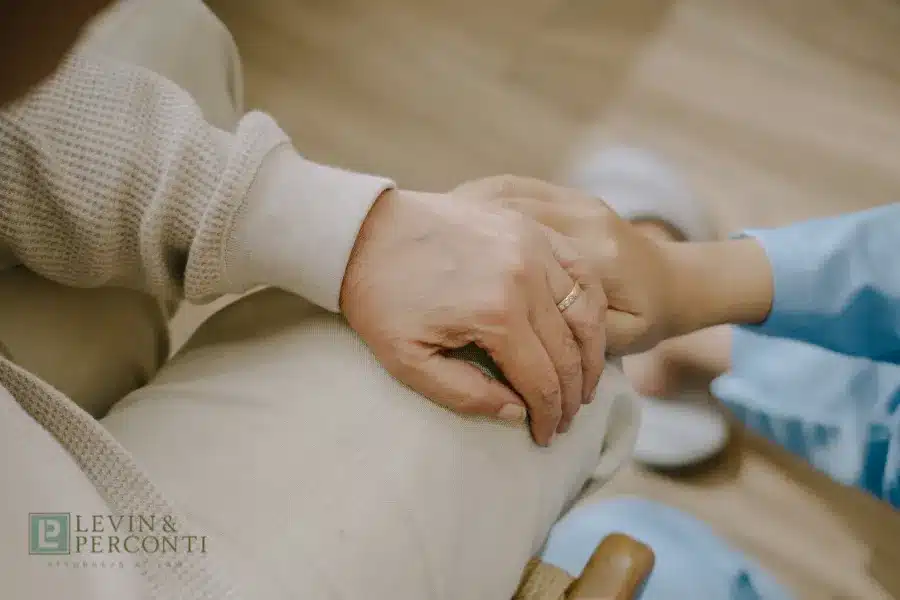Chronic understaffing in nursing homes isn’t just a staffing issue; it’s a safety crisis. Unfortunately, chronic understaffing is a significant issue that can compromise the quality of care residents receive. A recent case in Pennsylvania highlights the severe consequences that can arise when nursing home operators prioritize profits over patient care through fraudulent staffing practices.
More Than $15 Million Ordered in Restitution for Staffing Fraud
In a recent federal court case in the Western District of Pennsylvania, two companies operating Pittsburgh-area nursing homes were ordered to pay over $15 million in restitution for health care fraud related to understaffing. Comprehensive Healthcare Management Services, operator of the Brighton Rehabilitation and Wellness Center, and Mt. Lebanon Operation, operator of the Mount Lebanon Rehabilitation and Wellness Center, were found guilty by a federal jury in December 2023.
The conviction stemmed from the companies’ false statements concerning health care payments and their subsequent obstruction of investigations by the Centers for Medicare & Medicaid Services. Evidence showed that through high-level personnel and other employees, these facilities falsified staffing information provided to the Pennsylvania Department of Health and CMS to appear compliant with participation requirements for Medicare and Medicaid. This scheme involved adding names of individuals who were not actually working, did not provide direct patient care, or were not even in the building to staffing sheets. The purpose of this deception was to avoid penalties and continue accepting new patient admissions despite having low staffing levels that nurses advised were insufficient to adequately care for additional residents.
Understaffing Leads to Residents’ Serious Injuries
Family members of former residents provided powerful impact statements, describing a significant decline in staffing after the defendant companies acquired the homes and detailing how decreased staffing negatively affected their relatives’ care, treatment, health, well-being, and hygiene. One tragic example involved a serious injury to a female resident from a violent physical assault by a male resident when no staff were present to intervene in the attack or help the victim.
U.S. District Judge Robert J. Colville described the actions as a “tragic set of events” that not only increased the risk of inadequate care for patients but also impacted employees and the public trust. He noted that the facilities’ actions defrauded the government and taxpayers and resulted in a loss of care for patients. While a jury found individual company leaders not guilty, the businesses themselves were held accountable. Brighton was ordered to pay over $12.6 million in restitution and serve five years of probation, while Mt. Lebanon was ordered to pay over $2.7 million and serve one year of probation.
Why This Matters in Illinois: Understaffing and Enforcement
This Pennsylvania case underscores a broader, national problem regarding the dangers posed by understaffing and fraudulent reporting. Unfortunately, Illinois has faced its own significant challenges with nursing home understaffing. Some sources indicate that Illinois has more nursing home abuse cases than any other state, and understaffing is a primary factor contributing to this.
Illinois law already mandates minimum staffing requirements, specifically requiring at least 2.5 hours of direct care daily for residents needing intermediate-level care and 3.8 hours for those needing skilled-level care. However, sources indicate that on average, Illinois nursing homes provide only 2.99 hours of staff care per resident per day, ranking the state 48th out of 51 for providing adequate direct care. Furthermore, an investigation in 2019 found that at least a fourth of Chicago-area nursing home residents live in facilities that do not consistently meet the 2.5-hour standard.
New Illinois Staffing Requirement Fines as of January 2025
Recognizing this problem, a new Illinois law that took effect January 1, 2025, aims to strengthen accountability by mandating fines for nursing homes that fail to meet the minimum staffing requirements. The Illinois Department of Public Health will assess compliance quarterly and levy monetary penalties based on data gathered beginning January 1.
The fines are calculated based on the cost of wages and benefits for missing staffing hours. For a first offense, the fine is 125 percent of the cost of missing hours; for a second offense, it increases to 150 percent; and for a third or subsequent offense, the fine reaches 200 percent of the cost of missing hours.
Non-compliant facilities will receive written notices and must submit correction plans. In addition, the law requires violators to publicly advertise any state staffing violations on their websites, in their lobbies, at registration desks, and at public entryways.
While understaffing itself may not technically be illegal, failing to meet minimum staffing standards and the resulting neglect or abuse violates the law and patients’ rights. Understaffing can lead to numerous forms of harm, including:
- Frequent slips and falls
- Bedsores, or pressure ulcers
- Malnutrition and dehydration
- Medication errors and overmedication to subdue residents
- Untreated infections like sepsis
- Poor hygiene
- Physical or chemical restraints
- Wandering and elopement
Factors contributing to understaffing often include nursing home operators prioritizing profits over patient care, high staff turnover, inadequate training, high labor costs, and a lack of available trained staff.
Levin & Perconti: Standing with Families Affected by Nursing Home Negligence and Abuse
The Pennsylvania case underscores the critical importance of holding nursing homes accountable when understaffing and fraudulent practices lead to harm. For over four decades, Levin & Perconti has advocated for the rights of nursing home residents and their families in Chicago and throughout Illinois.
Our founder, Steven Levin, is a nationally known attorney who has pioneered nursing home litigation in the United States since the 1970s. He has also contributed to drafting new legislation governing nursing homes, including the Illinois Nursing Home Care Act.
Levin & Perconti has a strong track record of achieving significant verdicts and settlements for individuals and families impacted by nursing home abuse and neglect, recovering millions of dollars. This includes obtaining some of the top jury verdicts in nursing home negligence cases in Illinois history.
Recently, we obtained a settlement for the family of a nursing home resident who choked due to understaffing. Although requiring supervision while eating, an 88-year-old resident choked on his food during dinner. He died as a result.
If you suspect your loved one is a victim of nursing home neglect or abuse in Illinois, trust your instincts. Common signs may include unexplained injuries, frequent falls, bedsores, malnutrition, dehydration, changes in behavior, or issues with medication. Don’t hesitate to take action.
We offer free, confidential case evaluations for families concerned about nursing home neglect. .
Contact Levin & Perconti today to speak with an experienced Chicago nursing home abuse lawyer and learn about your options.



